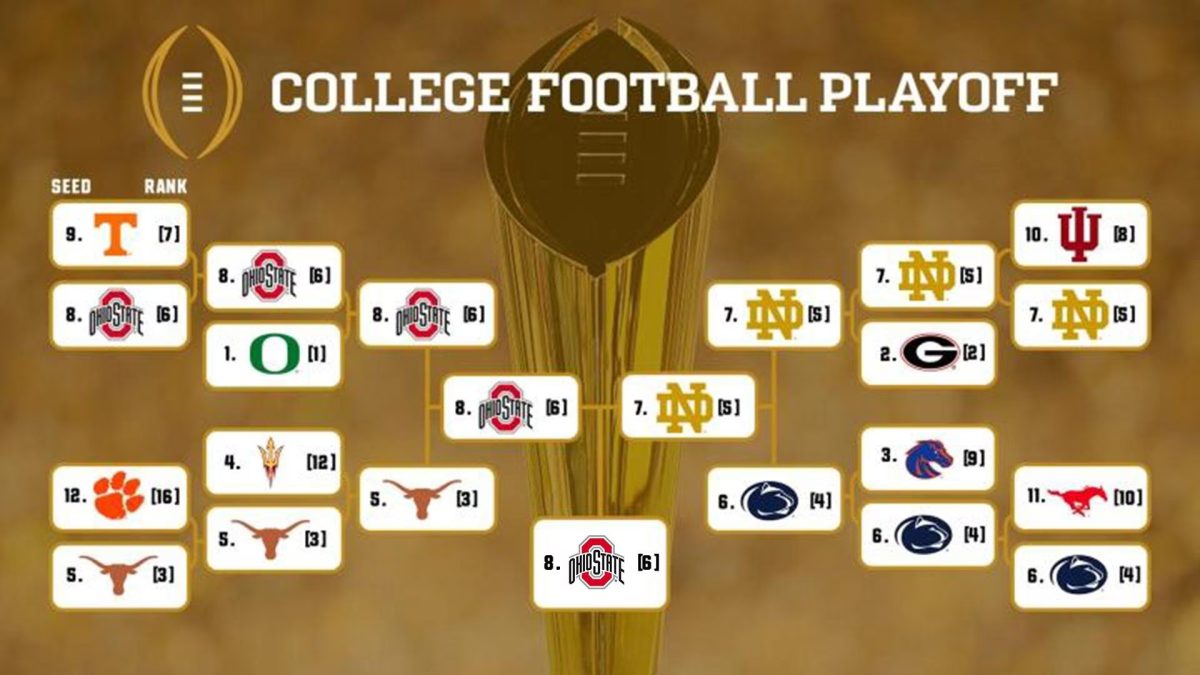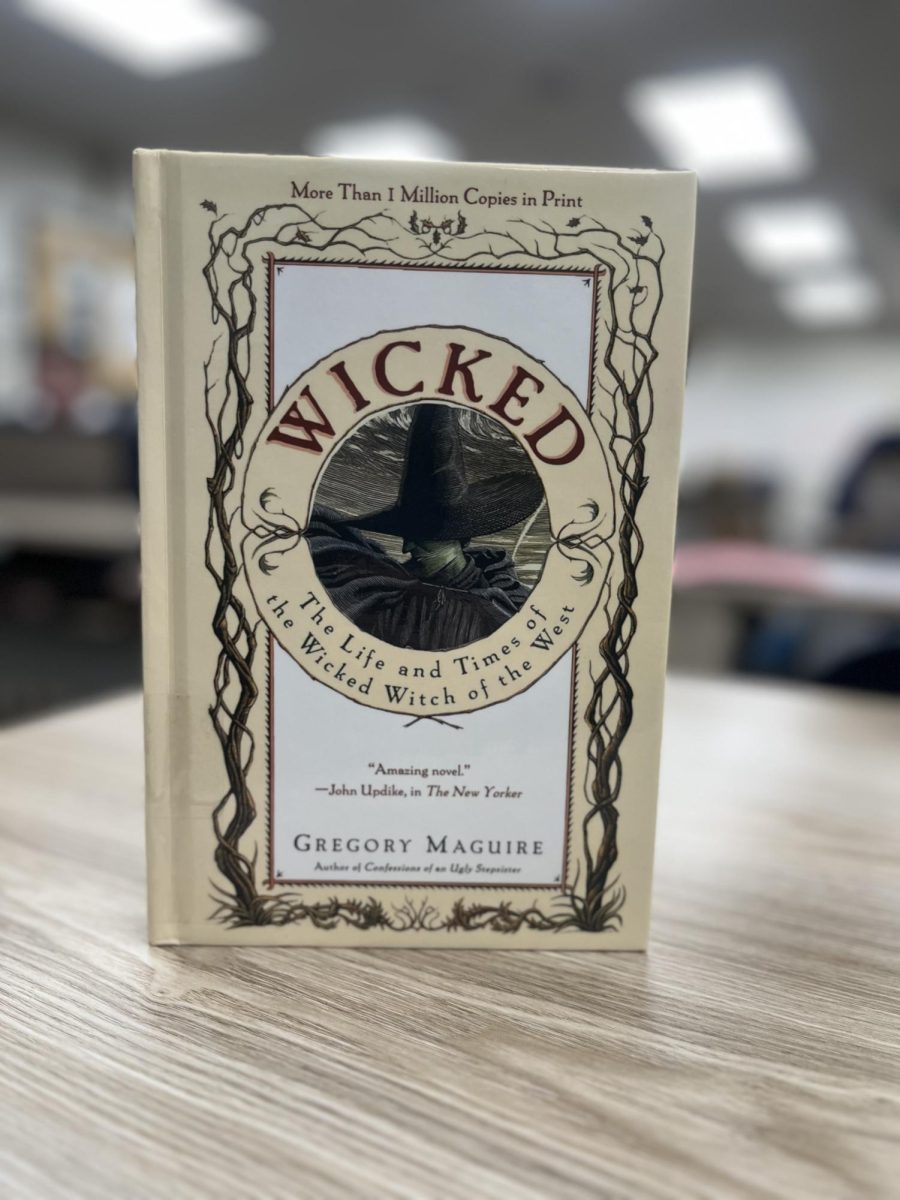Ok, so, the title is a little bit misleading… I’m only going to go over nine AP classes today. Don’t worry, though – they’re the most frequently taken courses at Pius. If you’re in an AP class, it’s probably on this list.
We’ll start with freshman/sophomore AP Human Geography, shift to the sophomores’ AP World, and wrap up with senior AP US Government and AP Psychology. (Not to mention the heavy load of courses in the middle. Good luck, juniors!)
AP Human Geography
Structure: 60 MCQs (60 minutes) and 3 FRQs (75 minutes)
Passing Grade: 48%
Minimum Score to Earn a 5: 70%
Top Tips
- Read the textbook!! (And make short summaries with notes)
- Practice FRQs (they’ll help with MCQs too). Look up “AP Human FRQ Ch ___”
- Use Varsity Tutors for practice MCQs ordered by subject, with explanations. Work from your weakest sections up to what you remember best.
- For tips on FRQs, check out the AP World and APUSH sections!
AP World
Structure: 55 MCQs (55 minutes), 3 SAQs (40 minutes), 1 DBQ (60 minutes), 1 LEQ (40 minutes)
Passing Grade: 48%
5: 75%
Top Tips
- Use Inquisitive (on your online textbook)
- Read over sections of the AP World book for review instead of your textbook. Highlight important points in one color and things you forgot in another color. (can also take notes)
- For the DBQ, plan out your essay. Here’s how:
- Thesis Statement: My go-to is “Although/Despite counterclaim, restate the question to a great/moderate/low extent because point one and point two.
- Evidence Paragraphs: I usually like to sort six documents into three paragraphs. Two might be the counterclaim, and the other four go into point one and point two. I would recommend writing point one and point two and combining the counterclaim and conclusion in a final paragraph (for time’s sake).
- Evidence Outside the Documents: Jot down what you know about the prompt before reading the documents. That way, your brain won’t get crowded, and you won’t forget other outside information.
- HAPPY: Keep in mind that you don’t need HAPPY for every document. But it can’t hurt to do a few more than you need (especially if you have time) in case you miss one. Don’t be afraid to literally write historical context, audience, purpose, etc. in your essay, so the reader knows you’re attempting HAPPY.
- FRQs: Make sure to READ the prompt. This might sound obvious, but, you have to be super careful to answer exactly what they’re asking. Especially when you’re hours deep into a seemingly endless exam, when you’re most likely to skip a word– and lose a lot of easy points.
- For more tips, check out APUSH below (the courses are very similar!)
AP United History
Structure: 55 MCQs (55 minutes), 4 SAQs (50 minutes), 1 DBQ (55 minutes), 1 LEQ (35 minutes)
Passing Grade: 48%
5: 75%
Top Tips:
- For more tips on FRQs, feel free to refer to AP World (DBQ, LEQ, and SAQ are nearly identical).
- However, make sure to identify any specific years or dates mentioned in the prompt. This will likely give you a clue to a specific event (such as Pearl Harbor) or a specific time period (such as Reconstruction.) A good study tool might be creating a timeline of US history so you can see how key events overlap and follow each other.
- For MCQs, take a second to think about what concept is being tested. Is it trying to prove that you understand that the colonies originally sought a peaceful resolution with Britain, for example? Or is it simply asking you to recognize the Red Scare from a political cartoon?
- Make sure to review unit by unit, in order to keep the time periods in track. I would take bullet point notes of key concepts, while making note of connections throughout the different units at the end. (APUSH is all about connections.)
AP Lang
Structure: 45 MCQs (45 minutes), 3 FRQs: Synthesis, rhetorical analysis, argument (2 hr. 15 min)
Passing Grade: 53%
5: 75%
Top Tips:
- MCQs: Practice, practice, practice. Don’t just understand the answer to a specific question, but the concept being tested. Consider what the test writer wants you to get from the information (as well as common “trick” words… like ‘always’ or ‘never’ that could turn a correct answer into a wrong one).
- The best thing to do is know your vocab. Here’s a pdf and quizlet to help:
- Synthesis:
- A synthesis is essentially like a DBQ. Check out the DBQ section on AP World for tips! (And how to construct a strong thesis)
- Rhetorical Analysis:
- Thesis format: I’d recommend something like “In his/her adjective, type of writing, Name action verb the audience by implementing choice one and choice two in order to purpose.
- In her inflammatory speech, Elizabeth Cady Stanton electrifies the suffragettes at the Seneca Falls Convention by implementing relatable anecdotes about gender discrimination and surprising statistics in order to galvanize the women to fight for equal rights.
- (this is completely made up and not a real prompt)
- Argument:
- Read the news!! If you have a Macbook, it’s super easy to look at Apple News. If you use Spotify, check out NPR’s 5 minute recap in the morning. Both of these sources, along with BBC News, are considered neutral and will have a variety of info you can use in your argument.
- Don’t forget about the books you’ve read, especially throughout your Pius career (even if you didn’t read them, maybe consult Sparknotes). Books, especially critically acclaimed ones, are great tools to support an argument.
- Be careful with your personal stories. Personal experience can be a great asset to an argument essay, but it should never be at the root of your argument (that’s where the facts should go). Also make sure your personal experience is relevant to the topic.
AP Physics I
Structure: 50 MCQ (90 min), 5 FRQ (90 min)
Passing Grade: 40%
5: 70%
Top Tips:
- Know the basics really well (like kinematics) because everything expands off of that.
- Adding on to that, knowing the concepts is way more important than simply memorizing the information (or formulas– because you have a sheet).
- FRQs: Write down all of the formulas you use to maximize points.
- Do as many practice problems as you can. That’s the best way to start learning what’s going on.
- Pay attention during labs– if you understand how it works, you can apply the concepts to the test.
- Refer to the AP Chem plan to read more about how to design an efficient study plan customized to you.
AP Chemistry
Structure: 60 MCQs (90 minutes), 7 FRQs (105 minutes)
Passing Grade: 42%
5: 72%
Top Tips:
- Design a study plan that works best for you. Here’s how:
- Highly recommended– purchase the AP chem book. I spent months struggling with online resources and my textbook until I caved and bought the book. A week later my test average went up 20 points.
- Take the practice MCQ or FRQ. In the answer key, you can see exactly which unit and section the question came from. Take notes of how many wrong answers come from each section.
- Review the sections in the book that you missed the most. You can also use Khan Academy or Varsity Tutors for online practice questions.
- Understanding the concepts is easily the most important thing, especially when concepts start to layer on top of each other.
- For example: If you don’t understand how concentrations of acid and base change throughout a titration, you shouldn’t just guess. Look up a YouTube video and make sure you understand it.
- For FRQs, consider what the question is looking to achieve. What skill are they testing?
- Some frequent FRQs often ask about:
- When would a compound with only LDF forces have a higher boiling point than a compound with hydrogen bonds?
- What is being reduced/oxidized in the reaction?
- Draw a diagram of a solution or a Lewis structure.
- Stoichiometry
- Titrations
- How to design an experiment
- Some frequent FRQs often ask about:
AP Biology
Structure: 60 MCQs (90 minutes) FRQs (2 long, 4 short) (90 minutes)
Passing Grade: 43%
5: 78%
Top Tips:
- Stay on top of your vocabulary (flashcards or a quizlet may be helpful).
- This one has 1000 terms on it
- It’s super important to stay on top of your reading. If you’re already behind, start adding 15-30 minutes a day to catch up.
- Invest in an AP bio book– and follow the same process as with the AP Chem book, detailed above
- For concepts you don’t understand, watch videos from Bozeman Science’s YouTube channel and take notes.
- Learn to recognize patterns– trends in questions that come up a lot as you practice.
AP US Gov
Structure: 55 MCQ (80 minutes) 4 FRQ (100 minutes)
Passing Grade: 55%
5: 80%
Top Tips:
- Again, keep up with your reading!! (Please)
- Utilize the AP book for practice tests (see notes on AP chem book)
- Take a second before beginning FRQs to ensure strong organization– this is key. (can also check out FRQ tips from AP World/APUSH/AP Human… same for MCQs)
- Pay close attention to exactly what the question is asking about.
- Are you thinking about how citizens are affected, for example, or only government officials?
AP Psychology
Structure: 100 MCQs (70 minutes) 3 FRQs (75 minutes)
Passing Grade: 52%
5: 75%
Top Tips:
- Know your vocab! It’s very important to use the proper terminology.
- You’ll love this Fiveable website that has links to Quizlets from every unit
- (Also, if you know the vocab well, you can avoid stating contradictory information)
- Use UDA: Underline the term/concept, define the term, and apply the term to an example.
Overall, it’s important to follow standard test procedures: reviewing a little bit at a time, prioritizing your least understood concepts, and utilizing test strategies such as process of elimination. Keep in mind that everyone’s study process looks different… but I’m sure you’ll do just fine on your exams.
And if not, at least summer’s right around the corner!






